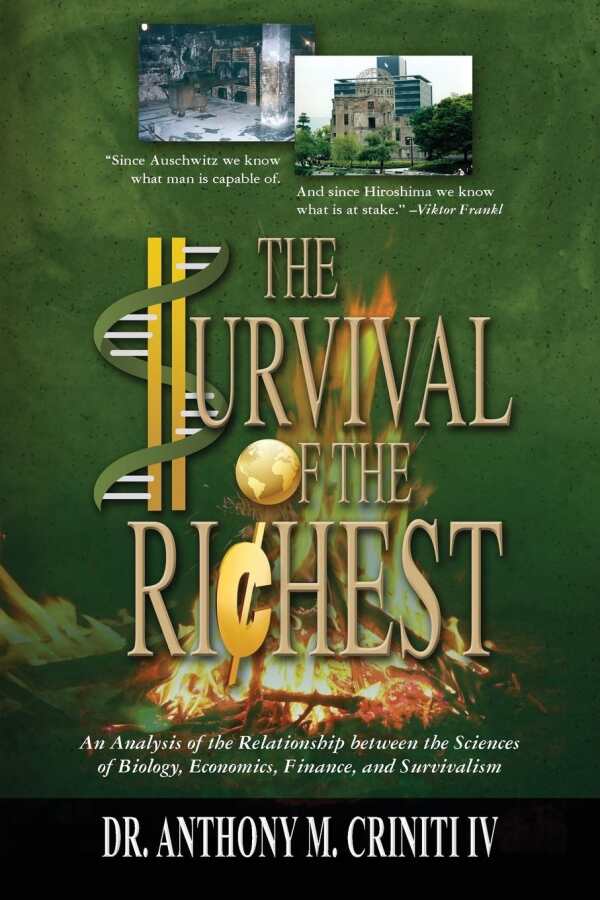The Survival of the Richest
An Analysis of the Relationship between the Sciences of Biology, Economics, Finance, and Survivalism
The Survival of the Richest is a ranging treatise that melds Darwinism with business theory to assert that wealth is essential to survival.
Anthony M. Criniti IV’s business text The Survival of the Richest imparts theories on survivalism and the accumulation of wealth.
Informed by Criniti’s hardscrabble upbringing outside of Philadelphia, the book’s topics include camping, war, and survival literature, drawn upon to suggest that humans’ innate desire to live ties into their desire to amass material resources. With examples as disparate as Viktor Frankl and an Uruguayan rugby team, it analyzes why people want to live, acquire riches (defined in broad terms to include natural resources), and maximize their prosperity, concluding that those basic impulses are intertwined.
Lewis and Clark, the Donner Party, and Bear Grylls are held up as examples of surviving through trying circumstances, leading into long meditations on surviving, reproducing, and other human imperatives. The book alternates between lofty theories and adages, such as that “self-defense may save your life,” and that energy conservation is crucial when food is in short supply. Within this eccentric text are also dubious claims, including that the connection between evolution and wealth wasn’t studied before now because of looming world events like the world wars.
The book’s cited sources are many. They include classic novels and US army manuals, but the connections drawn between them are scattershot, and its strands of knowledge are not synthesized. Quotes from compelling thinkers are present and interesting, but alongside passages that overthink concepts including the wilderness and civilization. Too much time is devoted to explaining basic notions, while some of the book’s significant claims, including that being able to afford exercise equipment, comedy club cover charges, and trash pickup extends people’s lifespans, are undersupported. It suggests combating mental health issues with laughter, and makes vague claims, including that “without economics and finance, history would have never occurred,” in a blunt manner that strains credulity. Even the book’s conclusion is hesitant and redundant.
Still, the writing itself is specific and concrete, exercising philosophical detachment in the process of making bold arguments. Its historical examples and pop culture references are ranging, and its organization into sections about how survivalism connects to other academic disciplines, including biology, finance, and economics, is clear.
The Survival of the Richest is a ranging treatise that melds Darwinism with business theory to assert that wealth is essential to survival.
Reviewed by
Joseph S. Pete
Disclosure: This article is not an endorsement, but a review. The publisher of this book provided free copies of the book and paid a small fee to have their book reviewed by a professional reviewer. Foreword Reviews and Clarion Reviews make no guarantee that the publisher will receive a positive review. Foreword Magazine, Inc. is disclosing this in accordance with the Federal Trade Commission’s 16 CFR, Part 255.

